- Home
- Blake Pierce
Face of Fear Page 8
Face of Fear Read online
Page 8
The front door was already closed. She had not stayed to wave him off. Perhaps she watched from a window; he watched closely, examining the curtains for a sign of someone behind them. Nothing.
She had inherited this little one-story home, a throwback to a time before the city needed the space for development so badly. It was crumbling and old, things failing to work. Things that she could not repair on her salary. He briefly wondered if someone else might feel sorry for her, an orphan at a young age. But she deserved no pity. Not with the evil she could wreak on the world.
He couldn’t wait any longer. Not even for caution. She needed to be wiped out, and now, before it was too late.
He approached the house on stealthy feet, rubber soles chosen carefully for their absorption and lightness. Not even a crunch of loose stones as he crossed the sidewalk. Was she watching him now? He hoped not. Even if she was, what could she do about it?
He had seen her house when she was out, walked all around it, examined it. Jumped a fence to get to the back, where what had once been a spacious yard generations ago was now another home, where the space allocated to hers only allowed entrance to the back door and nothing else. But the house had a back door, and that was the point. The most important point.
He circled around behind it, listening so closely he heard his own heartbeat above all else, drumming in his ears to keep him moving at a fast pace. He climbed the fence one more time, carefully this time, hooking his shoe against a knot in the wood to give him grip so that he would make no noise. Nothing that could alert her to his presence before he was ready.
As he suspected, she did not come out here often. And why? There was nothing here to enjoy. The back door was unlocked, just as he had left it when he broke in a couple of days ago. She imagined it locked because that was how she had left it. She had no idea that he had been inside, learning the layout, looking through her things. Seeing the smiling photographs that made him so angry he almost smashed them there and then.
His discretion, and the ability to hold his rage back, had paid off. He would unleash it in full now.
He carefully and slowly eased the door open, inch by careful inch. When he came by last time it had squeaked, so he had bought oil and poured it on the hinges in preparation. Now, there was no sound. Only the gentle click of the handle turning, the latch disengaging, and then the same again as he stepped inside and eased it shut behind him.
The house was small, small enough that he knew he was taking a risk. She could emerge at any moment from any of the three downstairs rooms, and she would see him. He took a breath all the same. Orienting himself in the corridor, taking the knife out of the pouch he had tucked into his waistband, feeling the ridged plastic handle made for a stronger grip.
The television was on in the room on the left. So much the better. It would keep her attention and cover any sound they might make.
He took one more steeling breath and charged forward, ready to grab her and make the slash.
He stumbled at the entrance to the room. It was empty. The television played to no one. She was not there.
He whirled around, a sixth sense that prickled on the back of his neck, and saw her. Standing in the doorway to her kitchen, holding a microwave meal on a plate, steam rising from it. Staring back at him, open-eyed and open-mouthed.
She did not scream, which was a blessing in itself. Nothing to explain away to the neighbors. But she dropped the plate on the floor and ran, darting out into the hall, attempting to pass him and get to the front door and out into the street before he could stop her.
He couldn’t allow that.
He lunged forward desperately, throwing his entire body weight in her direction. Blindly. Knowing that, in this tiny corridor space, she had nowhere to go but forward. All that mattered was that he went forward faster than she did. If he could do that—his hands latched onto her loose hoody, soft fabric, and he pulled back on it at the same time as his momentum continued carrying him forward. She slammed into his chest, forcing air out of his lungs.
It could have been enough. She might have overpowered him, knocked him down and run. But she didn’t.
She didn’t, because he hadn’t dropped the knife before he caught hold of her.
It didn’t take much to slash it sideways, dragging it across where he knew her neck would be. It didn’t even particularly matter if he wasn’t accurate. Once she was on the floor, he could finish it up tidier.
She didn’t fall right away. She was connected to him, her body weight resting on his where he had thrown her backward, and then her feet slipped on the floor. She almost knocked him down after all. She was reaching up, making a gasping, gagging sound, and he stepped back to let her fall.
She hit the floor hard. Blood running thick and fast over hardwood. A stain that would be hell to get out. An obvious crime scene. It didn’t matter. The impact to the back of her head left her twitching, lying there, staring up at the ceiling like a fish out of water, gasping sounds still coming from the part of her neck that kept pushing up with the force of her chest spasming in an attempt to breathe. Each gasp sending spurts. He stepped back, instinctively, avoiding the flow of the blood pool.
The sounds grew more desperate, closer together, then softer and further apart as her body began to give up. Whether she was looking at him or just up, seeing nothing, he couldn’t tell. His aim had been true. Though the cut was jagged, running at a diagonal instead of straight, it had done the job. Slashed right through the only artery that mattered.
He waited until she stopped moving, stopped making noises. Her head flopped to one side, the last convulsion passing through her. She was gone. Suffocated on her own blood, or drowned, or whatever it was. She was dead.
Another evil removed from the world.
There was one last thing to do, and he could not stay and admire his work for long. He didn’t want to: she was ugly, a mark of sin that was unfortunately necessary. He took no pleasure in ending her life. He was just doing what needed to be done.
He needed to burn her. Destroy her body and everything on it, and let the house burn too. Wipe away any mark of him that remained. Let firefighters spray water everywhere and trample the ground, until even outside there was no trace left. Make him invisible. That was what he needed to do now.
He reached into his pocket of his long coat to pull out a small canister of gas that had been clinking against his leg, slowing him down this whole time. Now it would be useful. Now it would take care of her.
“Naomi?”
He froze, the sound of knocking on the front door running a spike of alarm that fell all the way down his spine. The voice—a man. Who was it? Was she supposed to meet someone?
“Naomi, you there? You left your store key in my car. I figure you’ll need it tomorrow.”
The coworker! In spite of all the careful thought he had put into this attack, in spite of the exploration of her house as a backup plan after his selected location fell through, he had not bargained on this. Had not thought that someone else might come.
Her phone started ringing, right there in her pocket in the corridor. Buzzing and jingling a happy little tune as her blood spread around it.
“I can hear your phone. Can you just come and get the key? Are you in the bathroom or something?”
There was nothing to do. The coworker wasn’t just going to leave, was he?
He had to be smart here. He had to keep his mind on what was needed. There was no time to burn the body, that much was obvious. He had to get away, right now, before this shouting man attracted the attention of a neighbor or got suspicious and decided to call the police.
Maybe he wouldn’t do that. Maybe he would put the key through the letterbox and leave.
That would be the logical thing, right? To assume that his friend was ignoring him and leave?
Not to call the cops—that would be an overreaction.
Maybe he just had to wait.
He snuck back toward the back door, just in case.
No, more than that: he couldn’t be in the house. He couldn’t. He would come back later, watch from afar and make sure that the coworker really did go away. He had snuck in once. He could sneak in again.
Carefully and quietly like before, he eased the back door open and slipped into the cool night air.
Another loud rap at the front, this one making him jump, making him catch his breath.
“Naomi! Come on, open up! I want to get home and eat!”
Then a sound he recognized, even though the door was closing, even though he could no longer see.
The letterbox squeaking open with a groan of complaining metal.
And then, because he was outside now and there were no walls between him and the coworker, only fresh air that could travel around the side of a building, he heard it.
A gasp, startled and strangled.
An “Oh, god,” quick and strained.
A “Naomi!” yelled at full volume, and the sound of scuffling for a better view. A half-scream, a gasp for air after a gag.
And then the inevitable: “Hello? I need an ambulance!”
He was calling 911, and there was no way the man could remain there any longer. There would not be another opportunity. Soon this place would be crawling with cops, paramedics, all of it. He would be in trouble if he stayed.
He made a decision, the only one. No more hesitation now. He ran for the fence and jumped it, going for speed and height this time, not stealth. He felt the jarring pain as his feet hit the ground hard, then pushed off into a run, pushing past the startled coworker and hoping he would remember only a flash of a dark coat and not his face.
And he ran, not stopping to look behind him, darting down side streets and zigzagging, not stopping for as long as he dared, the cold air snatching at his breath with every step.
CHAPTER FIFTEEN
Zoe barely noticed the passage of time. She only knew that she had to get up at a certain point to turn on the lamp beside her temporary desk, around the same time that Shelley went out to go and reserve them a room at a motel.
She couldn’t stop, couldn’t draw herself away from the tattoos for long enough to think about anything else. Not even to think about whether she was hungry or tired or cold or aching. Nothing. There had to be some kind of answer here. She didn’t know how she knew it, but there was a pattern—a certain symbolism—something.
If only it had been written in the numbers, she could have found it easily. The six-inch length of this tattoo, the four ink colors used in that one, the number of tattoos each of the victims had. She could have given any of those facts off the top of her head, without having to think about it. They had sunk into her memory like glue.
She had studied them as closely as she knew how. The nine stripes on the tiger’s back, compared to the five on its head. Two on each visible leg and then five on the tail. Meaningless, probably. Just random chance, part of the design the artist had drawn. He likely felt that the artwork needed another stripe here, one more stripe there. Filling the space. Nothing more.
Still, there was one of the tattoos that she couldn’t stop going back to, time and time again. It was hardly surprising, given what it was. On her forearm, five simple numbers had been inked without ceremony or flash. Just a sequence on its own, like a serial number: 35681.
Three, five, six, eight, one… what could that mean? Zoe tried to think about things that might require a five-digit passcode, or identity number. Something like a safety deposit box? But then you would have to be pretty dumb to wear it on your skin, where anyone could read it and use it. Not a passcode, then. Assuming that Callie wasn’t dumb enough for that.
An identity number? There were lots of ways one might be assigned a number like that. Inmates in the federal prison system were given a five-digit number followed by a dash and then a further three digits as an identifier. Could this be a prisoner’s identification, cut at the dash? But why not include the full number? And why would you want to remember it so dearly?
If it was a loved one, you would want a name, or a picture, or a symbol—not a confirmation of the fact that they were a criminal. Unless you were proud of it, which you might be if you were a gang member. But then why not include the whole thing?
Zoe rubbed her eyes, not caring if she smudged her mascara across her face. This felt like a dead end. She was just making the association to felony because she was an FBI agent. Nothing unusual about that.
But what was unusual was to get a five-digit number tattooed on your arm, alone, without any further explanation or flourish. She didn’t know a lot about tattoos, but she knew that. She’d never seen anything like it. Not on a prisoner, not on a civilian. It had to mean something. But what?
She could go down any number of rabbit holes thinking about the number alone. Five digits could be the key to unlock a piece of software, a zip code (but not one that would be relevant to Callie in any way that she could see, since it was a location in Brazil), even a monetary value.
But it had to be meaningful, or it wouldn’t have been a tattoo. So all of those ideas went out the window one after another, until there was nothing left to try. And it wasn’t as though the first victim, John Dowling, had a similar serial number himself, something that would tie them together no matter what it meant. She had to figure out the meaning on her own.
She searched the area of Brazil on her computer, trying to look for something that would stand out. The map yielded no clues. No coded message, no especially important building or landmark that stood out. Had Callie ever been to Brazil? How would they even know? There had been no mention of something like that on her social media pages.
Zoe looked up prisoner numbers next, poring over the list of men and women marked out by the same five-letter code with another unique identifier after it. There were many of them—too many. Their names meant nothing to her. She went down the list one by one, looking up their gang affiliations, the states where they had committed their crimes and where they were incarcerated, their known relatives and connections. Nothing that tied any of them to Callie, or John Dowling, or Clay Jackson, or Los Angeles Del Infierno, or even MS-13. Nothing that stood out in any way.
What about the numbers themselves, as a function? Zoe had noticed right away that they added up to a sum of twenty-three. Could that mean something? It was probably nothing at all.
Mind you, it was worth noting that this was a case where the number twenty-three was relevant, just in case that did turn out to have some kind of bearing elsewhere.
“Zoe.”
Zoe looked up to see Shelley, breathless, appearing in the doorway. She had expected to be told it was time to head out to the motel to get some sleep, but that wasn’t the impression Shelley was giving. No, she looked alarmed, her eyes wider than normal and her breathing fast.
“What is it?”
“There’s been another murder. A woman with her throat cut. Not burned—the killer was interrupted. We have a witness.”
CHAPTER SIXTEEN
Zoe hugged her arms against her chest, warding off the chill of the nighttime air through her thin suit. California was normally mild and balmy at this time of year, the early spring, but tonight there was something of a breeze. Maybe it was the thought that there would have been a fire here, if it wasn’t for the chance interruption of their witness.
“That is him?” Zoe asked, nodding in the direction of a young African-American male sitting on the edge of an ambulance with a foil blanket around him.
“I believe so,” Shelley confirmed. “Do you want me to talk to him while you check the body?”
Zoe hesitated. It would be the better option. The easier one. After all, that was what they were each best at.
But, and maybe it was just Dr. Monk’s voice in the back of her head telling her to try more in social situations, Zoe felt like she should at least try.
“I will observe you,” she said, because that was a good first step, even if she still knew that Shelley was the best cho
ice to talk to, well, anyone. There was always a chance she would learn something, a new technique that she could use herself. “I would like to hear what he said firsthand.”
Shelley nodded easily and led the way. A paramedic was leaning on the ambulance gate, talking to the man in a low voice, but she respectfully moved away when she saw the two badges that Shelley and Zoe flashed as they approached.
“You’re the coworker who found Miss Karling?” Shelley asked. Zoe remembered the details from the brief report they’d had over the radio as they drove: Naomi Karling, a twenty-three-year-old college student who worked downtown in a store, had been found with her throat cut not long after being dropped home by a coworker. This coworker, to be precise. Nate King.
“Yeah,” he said, looking up at her with a weary and open face. All of the lines of it were drooping, like he had been through something so bad he couldn’t even hold an expression. Zoe guessed that was probably exactly the truth. He wasn’t a man, really, now that she looked at him: a boy, nineteen at the most, still gangly and growing accustomed to his six foot three of limbs that stuck out at angles from the blanket over his shoulders. Even his neck seemed long, his head bobbing unsteadily like a toy, a close-cropped covering of tight black curls only enhancing the impression.
“Can you tell us everything?” Shelley asked. She moved to sit down beside him, getting on his level. “Starting from when you left the store tonight.”
“I already told the cops,” Nate said, his eyes wandering with a certain disassociation over the uniformed officers around the house, each of them painted with flashes of red and blue light in the darkness.
“We aren’t the cops, Mr. King,” Shelley said. “We’re the FBI. I’m Special Agent Shelley Rose, and this is my partner, Special Agent Zoe Prime. We just need to hear it from you so we can get our investigation started and catch whoever did this.”
“It was a man,” Nate said, his attention snapping back to Shelley like a whip. “I saw him.”

_preview.jpg) Once Gone (a Riley Paige Mystery--Book #1)
Once Gone (a Riley Paige Mystery--Book #1)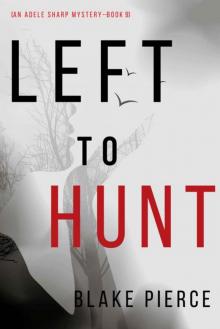 Left to Hunt (An Adele Sharp Mystery—Book Nine)
Left to Hunt (An Adele Sharp Mystery—Book Nine)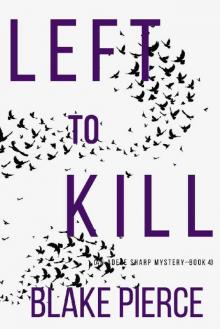 Left to Kill (An Adele Sharp Mystery—Book Four)
Left to Kill (An Adele Sharp Mystery—Book Four)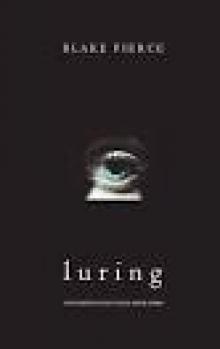 LURING
LURING If She Hid
If She Hid If She Fled
If She Fled Already Gone (A Laura Frost FBI Suspense Thriller—Book 1)
Already Gone (A Laura Frost FBI Suspense Thriller—Book 1) Vengeance in Vienna
Vengeance in Vienna Once Shunned
Once Shunned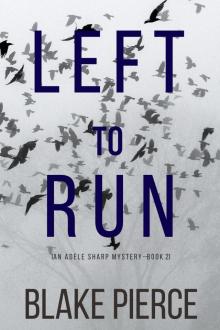 Left To Run
Left To Run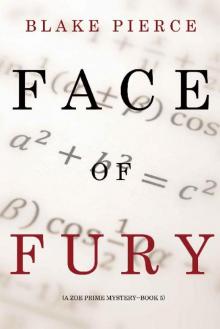 Face of Fury (A Zoe Prime Mystery--Book 5)
Face of Fury (A Zoe Prime Mystery--Book 5) Blake Pierce - Kate Wise - 5 - If She Fled
Blake Pierce - Kate Wise - 5 - If She Fled IF SHE RAN
IF SHE RAN Left to Envy (An Adele Sharp Mystery—Book Six)
Left to Envy (An Adele Sharp Mystery—Book Six) Silent Neighbor
Silent Neighbor Her Last Wish (A Rachel Gift FBI Suspense Thriller—Book 1)
Her Last Wish (A Rachel Gift FBI Suspense Thriller—Book 1) Almost Lost
Almost Lost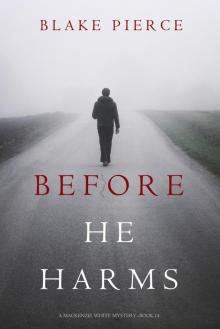 Before He Harms
Before He Harms Murder (and Baklava) (A European Voyage Cozy Mystery—Book 1)
Murder (and Baklava) (A European Voyage Cozy Mystery—Book 1) Left to Vanish (An Adele Sharp Mystery—Book Eight)
Left to Vanish (An Adele Sharp Mystery—Book Eight) THE PERFECT IMAGE
THE PERFECT IMAGE The Perfect Affair (A Jessie Hunt Psychological Suspense Thriller—Book Seven)
The Perfect Affair (A Jessie Hunt Psychological Suspense Thriller—Book Seven)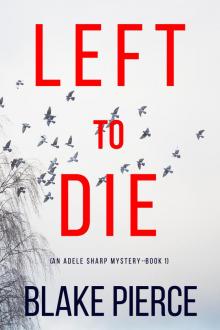 Left To Die
Left To Die BEFORE HE LAPSES
BEFORE HE LAPSES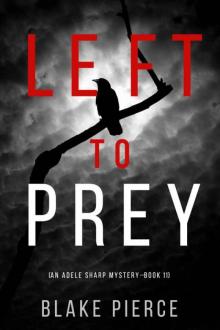 Left to Prey (An Adele Sharp Mystery—Book Eleven)
Left to Prey (An Adele Sharp Mystery—Book Eleven) The Perfect Neighbor (A Jessie Hunt Psychological Suspense Thriller—Book Nine)
The Perfect Neighbor (A Jessie Hunt Psychological Suspense Thriller—Book Nine)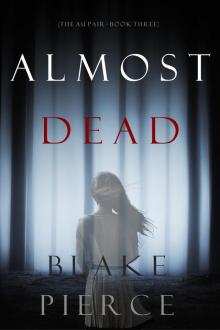 Almost Dead
Almost Dead The Perfect Wife
The Perfect Wife The Perfect Smile
The Perfect Smile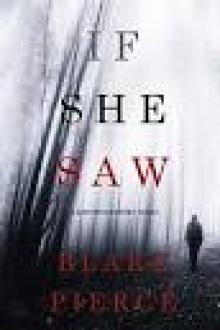 If She Saw
If She Saw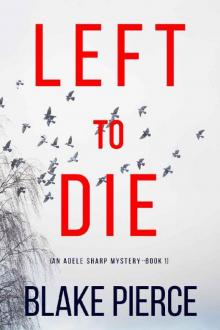 Left To Die (An Adele Sharp Mystery—Book One)
Left To Die (An Adele Sharp Mystery—Book One)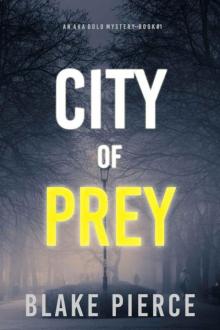 City of Prey: An Ava Gold Mystery (Book 1)
City of Prey: An Ava Gold Mystery (Book 1)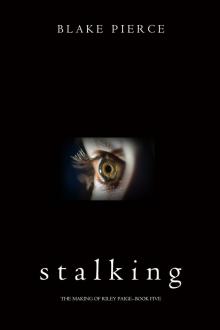 Stalking
Stalking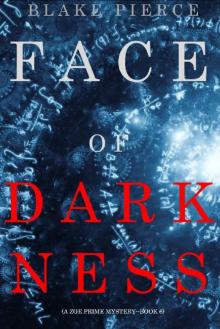 Face of Darkness (A Zoe Prime Mystery—Book 6)
Face of Darkness (A Zoe Prime Mystery—Book 6) The Perfect Mistress (A Jessie Hunt Psychological Suspense Thriller—Book Fifteen)
The Perfect Mistress (A Jessie Hunt Psychological Suspense Thriller—Book Fifteen) Girl, Vanished (An Ella Dark FBI Suspense Thriller—Book 5)
Girl, Vanished (An Ella Dark FBI Suspense Thriller—Book 5) The Perfect Block
The Perfect Block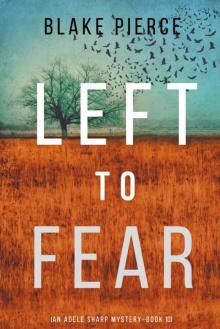 Left to Fear (An Adele Sharp Mystery—Book Ten)
Left to Fear (An Adele Sharp Mystery—Book Ten) Almost Gone (The Au Pair—Book One)
Almost Gone (The Au Pair—Book One) The Perfect Facade (A Jessie Hunt Psychological Suspense Thriller—Book Twelve)
The Perfect Facade (A Jessie Hunt Psychological Suspense Thriller—Book Twelve) The Perfect Affair
The Perfect Affair Once Chosen (A Riley Paige Mystery—Book 17)
Once Chosen (A Riley Paige Mystery—Book 17) Girl, Alone (An Ella Dark FBI Suspense Thriller—Book 1)
Girl, Alone (An Ella Dark FBI Suspense Thriller—Book 1)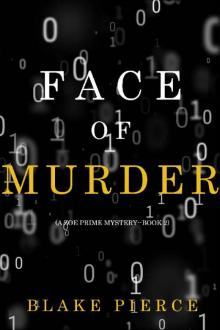 Face of Murder (A Zoe Prime Mystery—Book 2)
Face of Murder (A Zoe Prime Mystery—Book 2) The Perfect Mistress
The Perfect Mistress Crime (and Lager) (A European Voyage Cozy Mystery—Book 3)
Crime (and Lager) (A European Voyage Cozy Mystery—Book 3)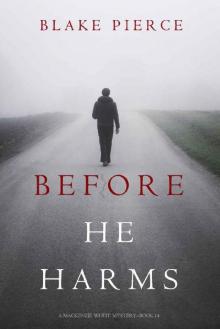 Before He Harms (A Mackenzie White Mystery—Book 14)
Before He Harms (A Mackenzie White Mystery—Book 14)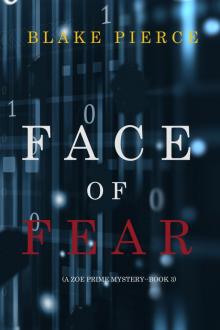 Face of Fear
Face of Fear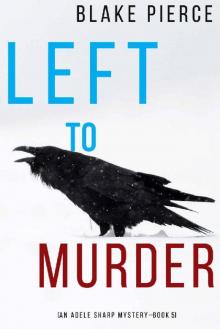 Left to Murder (An Adele Sharp Mystery—Book Five)
Left to Murder (An Adele Sharp Mystery—Book Five) Left to Vanish
Left to Vanish The Perfect Secret (A Jessie Hunt Psychological Suspense Thriller—Book Eleven)
The Perfect Secret (A Jessie Hunt Psychological Suspense Thriller—Book Eleven) The Perfect Deceit (A Jessie Hunt Psychological Suspense Thriller—Book Fourteen)
The Perfect Deceit (A Jessie Hunt Psychological Suspense Thriller—Book Fourteen)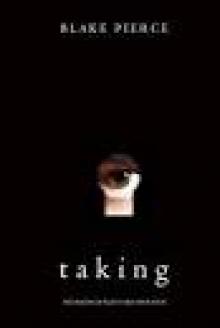 Blake Pierce - The Making of Riley Paige - 4 - Taking
Blake Pierce - The Making of Riley Paige - 4 - Taking Death (and Apple Strudel) (A European Voyage Cozy Mystery—Book 2)
Death (and Apple Strudel) (A European Voyage Cozy Mystery—Book 2) THE PERFECT HOUSE
THE PERFECT HOUSE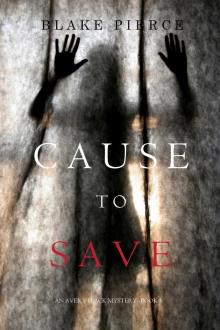 Cause to Save
Cause to Save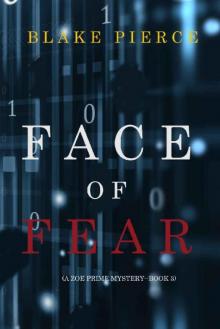 Face of Fear (A Zoe Prime Mystery—Book 3)
Face of Fear (A Zoe Prime Mystery—Book 3)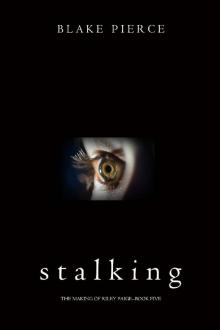 Stalking (The Making of Riley Paige—Book 5)
Stalking (The Making of Riley Paige—Book 5) A Neighbor's Lie
A Neighbor's Lie The Perfect Neighbor
The Perfect Neighbor Once Dormant
Once Dormant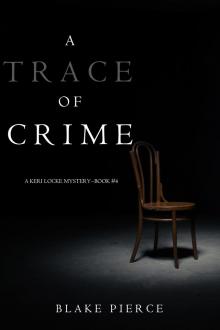 A Trace of Crime
A Trace of Crime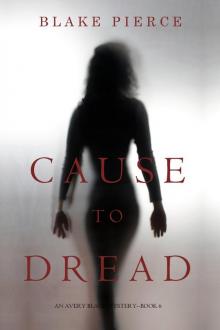 CAUSE TO DREAD
CAUSE TO DREAD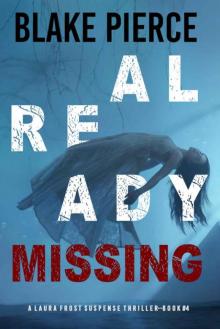 Already Missing (A Laura Frost FBI Suspense Thriller—Book 4)
Already Missing (A Laura Frost FBI Suspense Thriller—Book 4) Waiting
Waiting If She Knew
If She Knew If She Feared (A Kate Wise Mystery—Book 6)
If She Feared (A Kate Wise Mystery—Book 6)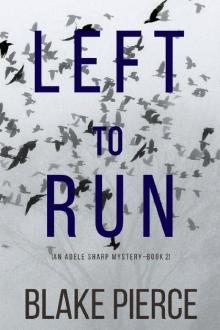 Left To Run (An Adele Sharp Mystery—Book Two)
Left To Run (An Adele Sharp Mystery—Book Two)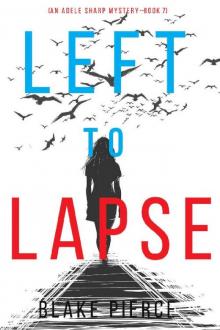 Left to Lapse (An Adele Sharp Mystery—Book Seven)
Left to Lapse (An Adele Sharp Mystery—Book Seven) If She Hid (A Kate Wise Mystery—Book 4)
If She Hid (A Kate Wise Mystery—Book 4) The Perfect Alibi (A Jessie Hunt Psychological Suspense Thriller—Book Eight)
The Perfect Alibi (A Jessie Hunt Psychological Suspense Thriller—Book Eight)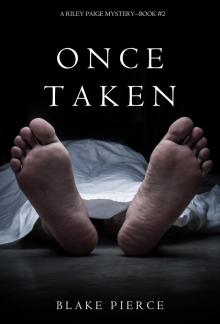 Once Taken
Once Taken Before He Envies
Before He Envies Before He Sins
Before He Sins Mackenzie White 07-Before He Sins
Mackenzie White 07-Before He Sins ONCE BOUND
ONCE BOUND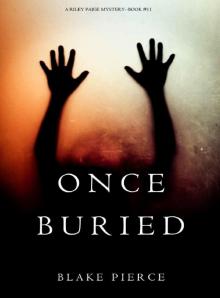 Once Buried
Once Buried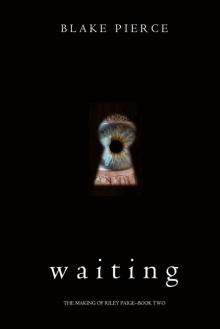 Waiting (The Making of Riley Paige—Book 2)
Waiting (The Making of Riley Paige—Book 2)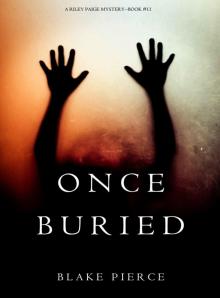 Riley Paige 11-Once Buried
Riley Paige 11-Once Buried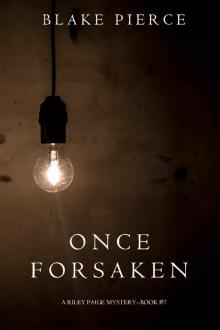 Once Forsaken (A Riley Paige Mystery—Book 7)
Once Forsaken (A Riley Paige Mystery—Book 7) Once Stalked (A Riley Paige Mystery—Book 9)
Once Stalked (A Riley Paige Mystery—Book 9) The Perfect Disguise (A Jessie Hunt Psychological Suspense Thriller—Book Ten)
The Perfect Disguise (A Jessie Hunt Psychological Suspense Thriller—Book Ten)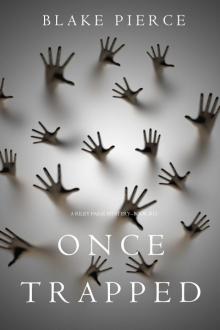 ONCE TRAPPED
ONCE TRAPPED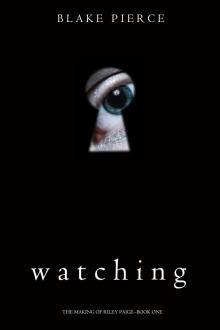 Watching
Watching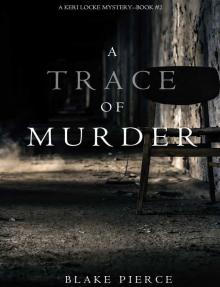 Keri Locke 02-A Trace of Muder
Keri Locke 02-A Trace of Muder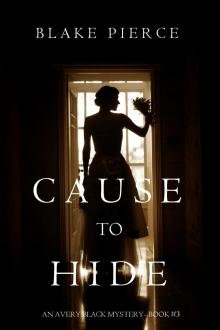 Cause to Hide
Cause to Hide Once Hunted
Once Hunted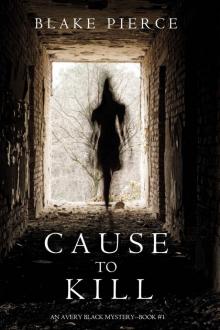 Cause to Kill (An Avery Black Mystery—Book 1)
Cause to Kill (An Avery Black Mystery—Book 1) Before He Preys
Before He Preys Once Pined
Once Pined A Trace of Hope
A Trace of Hope Once Craved (a Riley Paige Mystery--Book #3)
Once Craved (a Riley Paige Mystery--Book #3)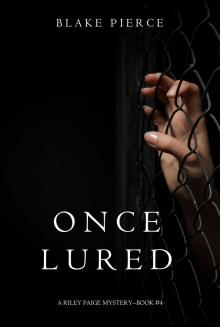 Once Lured
Once Lured Before He Sees (A Mackenzie White Mystery—Book 2)
Before He Sees (A Mackenzie White Mystery—Book 2) Before he Kills (A Mackenzie White Mystery—Book 1)
Before he Kills (A Mackenzie White Mystery—Book 1)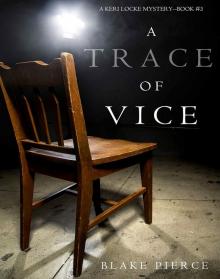 Keri Locke 03-A Trace of Vice
Keri Locke 03-A Trace of Vice Once Cold
Once Cold ONCE LOST
ONCE LOST Before He Takes
Before He Takes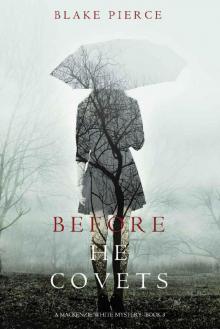 Before He Covets (A Mackenzie White Mystery—Book 3)
Before He Covets (A Mackenzie White Mystery—Book 3) BEFORE HE NEEDS
BEFORE HE NEEDS